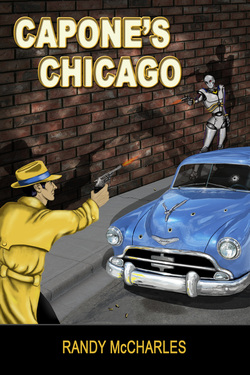Two aliens walk into a bar and are completely baffled by the selection. There’s row after row of Terran libations, a fine selection of Neptunian beers, rums from Raxacoricofallapatorius, and an entire shelf devoted to Ionian moonshine. So many liquors, so little time.How could anyone choose from such a massive selection?
Walking into a bookstore is much the same. I’ve been an independant bookseller for sixteen years. Our customers are often so dazzled and intimidated by the literary labyrinth that they can’t remember what they came in for. Granted, that’s if they knew in the first place. (Seriously, if you want to piss off a bookseller, say “I can’t remember the title or the author but it has a blue cover and they talked about it on NPR two weeks ago.) Sometimes we’ll even get someone that hasn’t picked up a book in years. Even though there’s a lot of pressure to find the perfect series, because we’ve sampled, savored, devoured, and researched our wares we can satisfy any craving.
It’s in this capacity where we become an author’s best friend. Not because we’re selling vast quantities — we’re not — but the copies we do sell go to the people who will appreciate that work the most. Handselling may not seem like a sound business philosophy and if our goal was to only sell copies of that one perfect title, the naysayers would be right. However, we know that once they’ve read that one perfect title they’ll be back to buy the rest of the author’s works. It also establishes trust so when we recommend another author they’re a lot more likely to buy it.
So how does an author get the support of America’s indie booksellers? Well the first step is to write and publish the best stories you can. It doesn’t matter if it’s published traditionally or independently. If it’s not in print, a brick and mortar store can’t stock it. There are only a handful of stores dabbling in e-book sales (that I know of) so if you’re work is only available as an e-book you’ll be severely limited but don’t let that stop you.
A good pitch isn’t just for editors and agents. They work on booksellers too. So do free samples. Back in ’08 Devon Monk sent us a packet that contained a lovely letter explaining that she was a local author whose first novel was releasing soon. It also had a chap book with the first two or three chapters, a poster of the book cover, bookmarks, and hypercolor pens. You don’t have to go to the expense of ordering custom swag. The introduction letter and sample are enough to get our attention since most indie stores don’t get that kind of consideration from traditional publishers. That said, if you have cool swag, send it. It worked for Devon. The swag made us more eager to read the sample — which we loved. We’ve kept her work in stock ever since.
If you don’t want to produce a chap book and your publisher isn’t printing an ARC (advance reader copy, also known as a galley) you can print it like you would a submission, offer to e-mail it to the store, or if you’re tech savvy you can put it in a locked post on your website or blog and give the store the access code. You also don’t have to mail it. If the store is local, by all means give it to us in person. We like meeting authors. Especially when they’re polite and professional. (When you work with the public all day those two things go a long way.)
My final caveat is if the store has a staff member that specializes in your genre, make sure to get their attention. That person is your drug lord. Gain their favor and they will sell your literary heroin to every word addict in the city.
You may have noticed that I’ve emphasized giving a sample. While we love our job, we don’t get rich doing it. And since we’re also word addicts we have our favorite fixes to purchase and consume. That’s what you’re competing against and that’s why the sample is key. If we like your pitch, we’ll probably add you to the “I’ll read it someday” list. Hook us with your sample and suddenly you’re on the “I must buy this now!” list. Once you’re on that list and the rest will take care of itself.
If this method doesn’t work, don’t fret. Your work may not have been right for that store’s clientele but there are other stores where your work will be right at home. Keep trying. It’s a deductible expense and even if the store doesn’t add your titles to their next order they’ve at least heard your name and that counts for something.

 One and all, we are here because we love stories. We were touched at some point in our lives by the words of another and were inspired to share our own thoughts and creativity with the world. Writers are born from fans. So then, it would be absolutely, utterly inconceivable that we, as authors, would cringe at any amount of fan attention. Honestly, it depends on the person. First and foremost, writers are people, and many of us are introverts. Interacting with people isn’t easy, so many authors create a mental space that I call the “fan-zone.”
One and all, we are here because we love stories. We were touched at some point in our lives by the words of another and were inspired to share our own thoughts and creativity with the world. Writers are born from fans. So then, it would be absolutely, utterly inconceivable that we, as authors, would cringe at any amount of fan attention. Honestly, it depends on the person. First and foremost, writers are people, and many of us are introverts. Interacting with people isn’t easy, so many authors create a mental space that I call the “fan-zone.”

 Randy McCharles Bio:Randy McCharles is an award-winning author of speculative short fiction, and was included in Year’s Best Fantasy 9. In January 2014, he left his day job to write full time and focus his attention on novel length works. When not making up tall tales, Randy organizes literary events, including chairing the
Randy McCharles Bio:Randy McCharles is an award-winning author of speculative short fiction, and was included in Year’s Best Fantasy 9. In January 2014, he left his day job to write full time and focus his attention on novel length works. When not making up tall tales, Randy organizes literary events, including chairing the